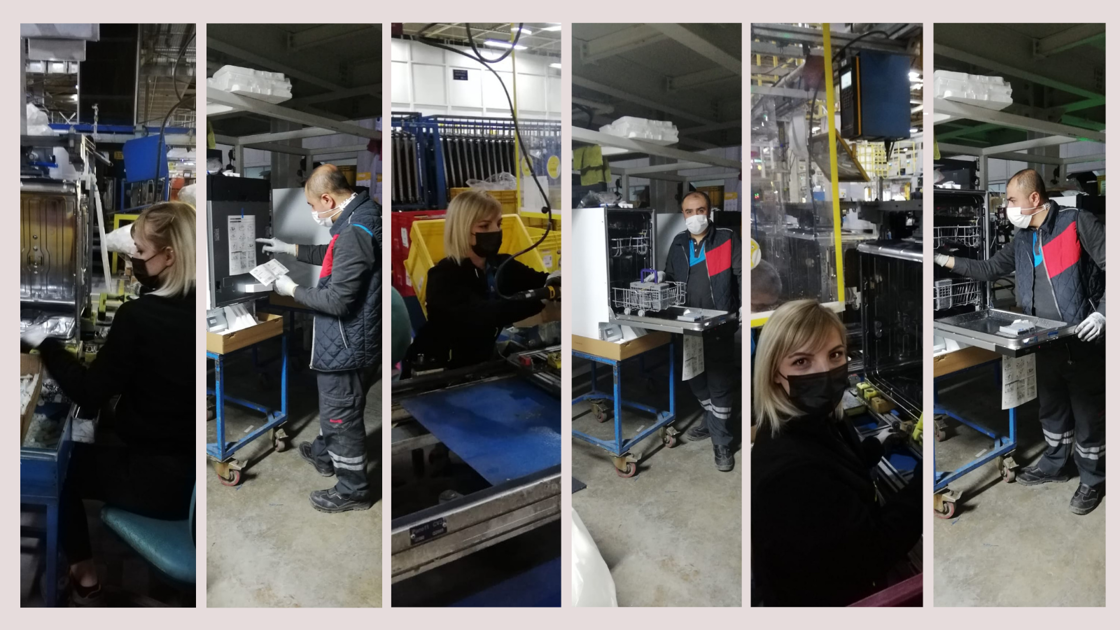IndustriAll Europe congratulates the Turkish colleagues for fighting and winning together.
On 12 January, after months of mobilisation, action, and campaigning, three industriAll Europe affiliates in the metal sector, Türk Metal, Birleşik Metal-İş and Özçelik-İş, reached an agreement with employers’ organisation MESS for a sector-wide collective bargaining agreement.
As reported here, the workers won a staggering average 65.67 per cent increase in the companies covered by MESS. Wages will increase by 27.44 per cent in the first six months of the agreement and 30 per cent for the second half. Further inflation increases during the second six-month period will be covered by the employers, and wages are to be adjusted to the inflation rate in the third and fourth six-month periods. The agreement also foresees a 35 per cent increase in social benefits for the first year of the agreement, while for the second year, the increase will be based on the inflation rate.
This is a breakthrough for metalworkers who have seen their purchasing power collapse in the current economic crisis that is gripping Turkey with soaring inflation and currency devaluation.
We asked Turkish metalworkers at the companies Arçelik Dish Washer, M.A.N. Turkey and Tabo Automotive about Turkey’s economic situation and their views on the new collective agreement.
Major concerns were expressed by all those interviewed about the Turkish economy, stating that the situation was worse than ever before. They also gave evidence of the harsh realities experienced on a daily basis, because of the massive drop in purchasing power.
"At work, everyone is constantly watching the increase in the exchange rate, and the government tells us ‘Why do you care about the exchange rate? Are you getting your salaries in US dollars?’ No, and that’s exactly why we care about the exchange rate! While the value of our salaries decreases, the prices of our daily needs are linked to exchange rate.
“Just at the start of this year, the government declared electricity price increases of up to 125 per cent. Even the price of public transport has increased 36 per cent. How can we survive in this way? Even the price of basic foods doubled last year, so our meals now have much less variety.” (Sevgi Aydın, working at Tabo Automotive)
“Our purchasing power is decreasing gradually. We must choose between meeting our basic needs and pursuing our daily life, or going out with friends and having a social life. Our existing earnings don’t allow us to do both. A single source of income for a household is not enough to maintain a living. If you are a couple, both partners need to be wage earners.” (Özge Nurbanu Yilmaz, warehouse worker, M.A.N Turkey).
“Most of our colleagues have cars, but they are afraid to use them because of petrol prices. Some of our colleagues lock up some rooms in their homes and heat only one or two rooms to spend less on heating. Most workers are looking for alternative income and that’s why we hear news of many workers losing their savings to some kind of Ponzi scheme investments.” (Sevgi Aydın)
The workers stressed that many are obliged to work overtime or take on two jobs to make ends meet.
Assessing the outcomes of the negotiations, the workers expressed satisfaction.
“Our demands for wages, working hours, working conditions and health care are quite satisfactory for now. Compared to wage levels across our country, our wages are well above the minimum wage.
“When we work over 45 hours, we receive double the hourly wage for each extra hour that we work. This is something that we have gained through this collective bargaining agreement. As for health care, all members of our union benefit from complementary health insurance. In this way, we can go to private hospitals whenever and wherever we prefer and receive treatment. Our families can also benefit from this complementary scheme for a reasonable fee.” (Gülşen Yüksel, assembly operator, Arçelik Dish Washer)
Luc Triangle, industriAll Europe General Secretary:
“IndustriAll Europe congratulates the Turkish colleagues for fighting and winning together. Their struggle and remarkable achievement are proof of the power of collective action. It shows once more that collective bargaining is the best way to deliver fair wages and protect purchasing power.”
Contact: Andrea Husen-Bradley (press and communication)
